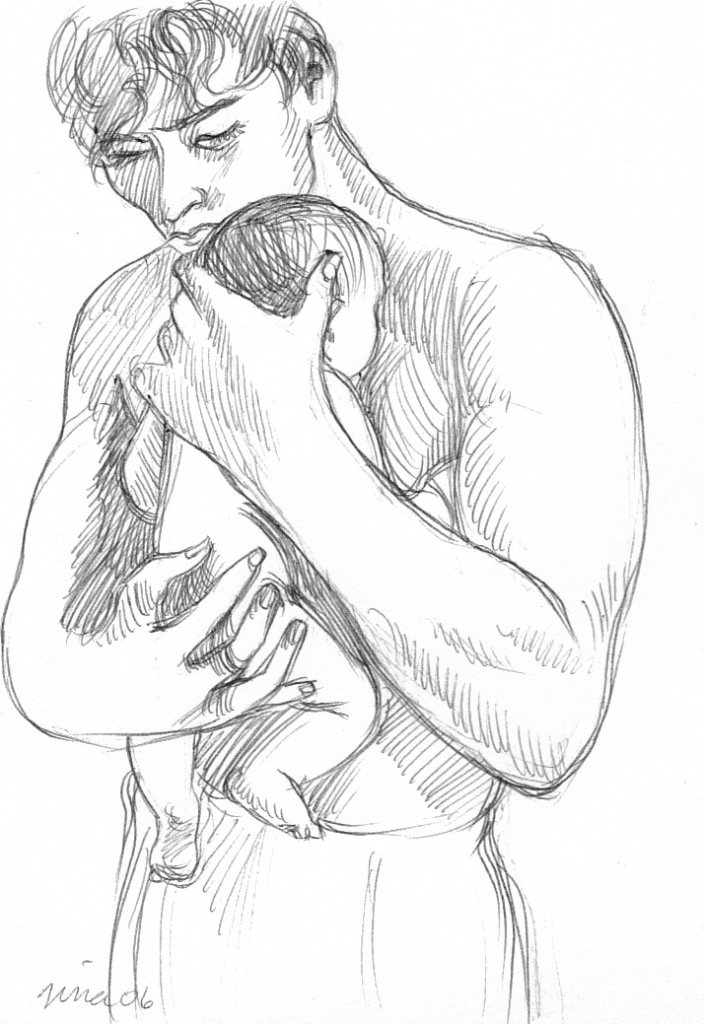Amongst the most time-honored, parent-proven ways to calm a baby’s crying is the almost-never-fail breastfeeding and this is followed closely by holding and movement ala cradles, swings, car rides. A scientist in Japan, Dr. Kumi Kuroda of the RIKEN Center for Brain Science has looked at this closely. It was a very small study of just 21 infants but the sequence of comforting behaviors that she describes was successful in many of the couplets.
The special sequence is this: Hold baby and walk for about 5 minutes. Most babies settled within seconds. Walk smoothly with minimal abrupt movements. Then sit quietly, still holding baby for at least 8 minutes, allowing baby’s sleep state to lower to a stage where she is less likely to arouse when moved. At this point, there is a good chance that you can gently lower her to bed and she will remain asleep. I think the infants were all less than six months old.
This may sound easy but 5 minutes feels like a long time if your baby is crying or maybe even crying harder. I have not tried this but I would love to know if you have and what your results were.
There is some comparison to this “transporting” technique in other mammals, such as lions and mice, in which it becomes literally a matter of life or death to quiet their young.
I recognize that there is an advantage in simply choosing a specific behavior to soothe a baby and then sticking with it. (once again, easier said than done) Sometimes it takes an infant a bit of time to organize a response and/or to calm down. He might not yet be there when an eager parent may already be trying something new. If he has to cope with quick or multiple changes of position or energetic patting or bouncing or going into/out of the swing and music and toys coming into and out of his visual field, it surely will add to his distress. So whether you choose the walk and sit sequence of soothing or maybe just rocking, whatever you choose, try to sustain the support long enough for baby to trust it and allow himself to relax and recover his equilibrium.
Sweet Dreams!
this and related papers at: pubmed.ncbi.nlm.nih.gov/23602481/

